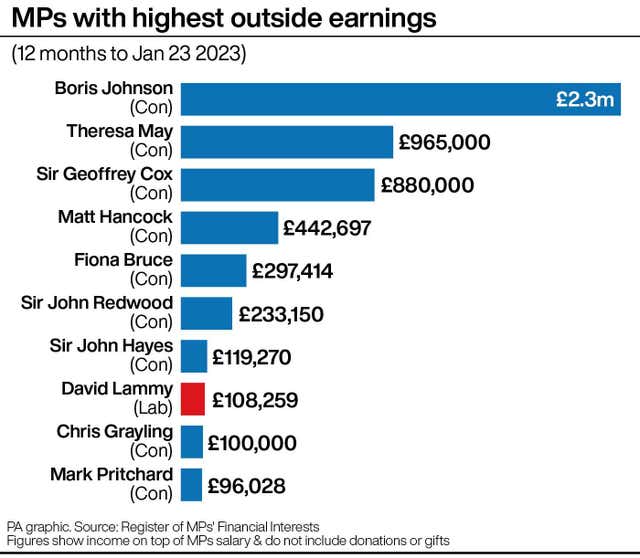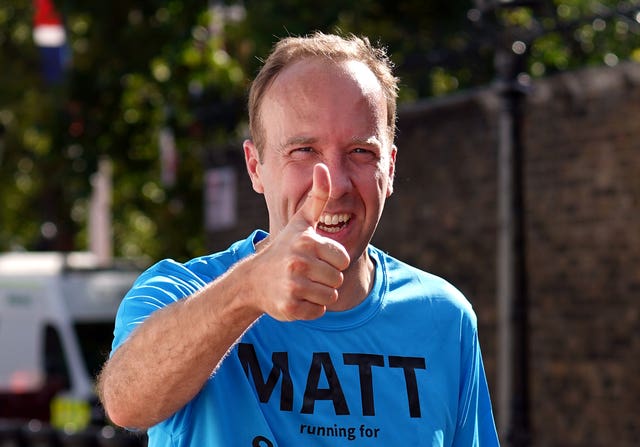MPs have declared £8 million in earnings on top of their parliamentary salaries, with Boris Johnson accounting for more than a quarter of the total.
The former prime minister earned £2.3 million in the past 12 months, on top of the £84,000 salary he receives as an MP.
Almost all of that money has come in since Mr Johnson left Downing Street in September, and includes £1.8 million in speaking fees and a £510,000 for his upcoming memoirs, declared on Thursday.

News of the advance for Mr Johnson’s memoirs came as it emerged that the taxpayer could end up spending more than £222,000 on legal fees defending the former prime minister from a Commons inquiry into whether he misled Parliament over partygate.
Mr Johnson’s total outside earnings make him the highest-paid MP over the past year, far outstripping his predecessor Theresa May, who declared £965,000 in speaking fees.
Most of Mrs May’s earnings are used to fund her private office and charitable work, with the former prime minister drawing an annual salary of £85,000 in addition to her MP’s pay.
In total, MPs have declared £8.07 million in outside earnings in the past year, including payments for second jobs, speeches, TV appearances and books.
Just three MPs account for half of declared outside earnings: Mr Johnson; Mrs May and former attorney general Sir Geoffrey Cox, who earned £880,290 from his legal work.

Sir Geoffrey was criticised in 2021 after it emerged he had used a proxy to vote in Parliament while working on a corruption inquiry in the British Virgin Islands.
Other high earners include Matt Hancock, who has declared £442,697 over the past year, including £320,000 from appearing on I’m A Celebrity, Get Me Out Of Here!
Nine of the top 10 earners were Conservative MPs, with David Lammy the only Labour MP in the top 10, declaring £108,259. This included £48,908 in speaking fees and £53,500 for presenting shows on LBC.
Some 39 MPs were paid more than the median UK salary of £31,000 in outside earnings alone, although 409 declared no outside earnings at all.




Why are you making commenting on The National only available to subscribers?
We know there are thousands of National readers who want to debate, argue and go back and forth in the comments section of our stories. We’ve got the most informed readers in Scotland, asking each other the big questions about the future of our country.
Unfortunately, though, these important debates are being spoiled by a vocal minority of trolls who aren’t really interested in the issues, try to derail the conversations, register under fake names, and post vile abuse.
So that’s why we’ve decided to make the ability to comment only available to our paying subscribers. That way, all the trolls who post abuse on our website will have to pay if they want to join the debate – and risk a permanent ban from the account that they subscribe with.
The conversation will go back to what it should be about – people who care passionately about the issues, but disagree constructively on what we should do about them. Let’s get that debate started!
Callum Baird, Editor of The National
Comments: Our rules
We want our comments to be a lively and valuable part of our community - a place where readers can debate and engage with the most important local issues. The ability to comment on our stories is a privilege, not a right, however, and that privilege may be withdrawn if it is abused or misused.
Please report any comments that break our rules.
Read the rules hereLast Updated:
Report this comment Cancel